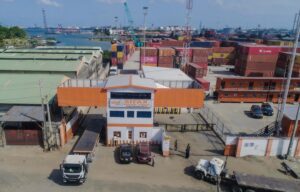AfCFTA: Nigeria to benefit from $29trn market by 2050–Report

Ernst and Young (EY) in a new report has said that with the elimination of tariff, the introduction of the African Continental Free Trade Area Agreement (AfCFTA) is expected to boost intra-African trade by 52 per cent and help Nigeria and others benefit from a $29 trillion market by 2050.
The report titled: “Diversification and Non-oil Export Opportunities for Nigeria States Post-COVID-19,” which was commissioned by the PDF Bridge Programme, said that through the elimination of tariffs, the enlarged continental market will attract higher FDI flows into the continent to support infrastructure development, increase productivity, support diversification, value addition and structural transformation.
It added that the emerging economic prosperity is also expected to narrow down to Nigeria, given its large market and government’s drive to grow the economy via its succeeding economic plans.
The report stated that with the ratification of the AfCFTA, Nigeria would potentially access a largely under-utilised intra-African market, thereby driving the competitiveness and growth of local companies, consequently aiding the country’s pivot away from crude oil.
The publication, however, stated that the period taken to achieve documentary compliance remained a major deterrent to trade in the country, largely due to the inadequate infrastructure to support the testing and verification process of products by certifying standards agencies.
It called for institutional discipline to drive the development, synchronisation and harmonisation of various government and organised private sector actions particularly as multiple players currently operate within the MSME and non-oil sector development space.
“However, these different players often operate in silos, with limited information sharing,” it added.
The report noted that Nigeria currently operates a pseudo-closed economy, with restrictions on capital flows, restrictive capital repatriation processes and inconsistent foreign exchange policies.
It noted that the country in 2019 partially closed its land borders as part of its effort to curb cross border smuggling and strengthen local production, adding that although the land closure resulted in higher local production for some commodities including rice, the “inconsistency of this move vis-a-vis the recent signing of the WTO TFA and the AfCFTA indicates a lack of coordination by the policymakers and overall institutional environment in the country and further reduces the ability of the economy to garner required foreign direct investment.”
It stated that some stakeholders had pointed out that in a bid to sustain production levels, foreign currency was sourced from the parallel market (N475/$) due to the low supply from the CBN.
“However, proceeds from exports are then received at the investors and exporters’ (I&E) window rate (N390/$), thereby further limiting their constrained earning potential.
“Trade protectionist policies, such as the CBN’s forex exclusion list, while stimulating local production may also have a regressive effect on economic growth.
“Local production of a protected commodity is increased at an uncompetitive cost to consumers, resulting in overall erosion of living standards,” the report added.
The publication documented the results and findings of a study carried out to identify non-oil export opportunities within Nigeria’s value chain and proffered recommendations on how Nigeria could generate foreign exchange earnings from identified products as part of its trade diversification plans.






